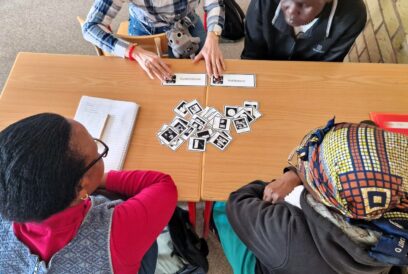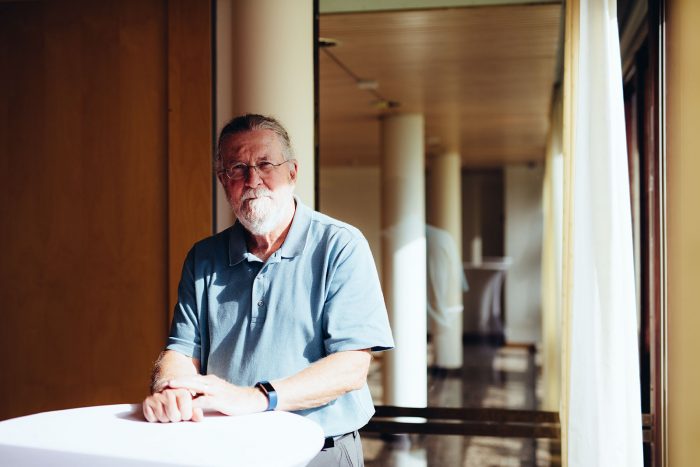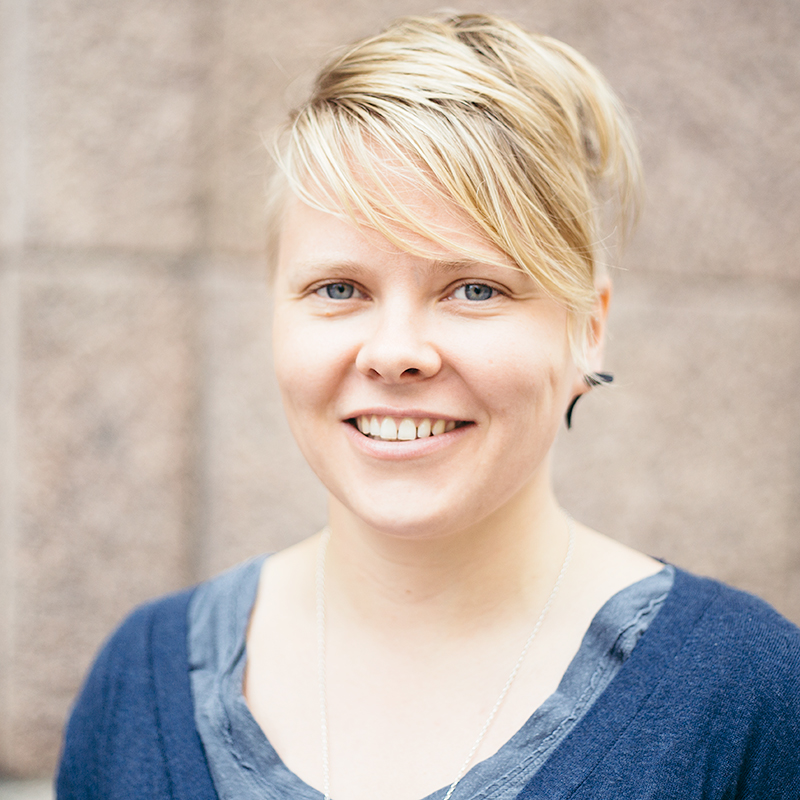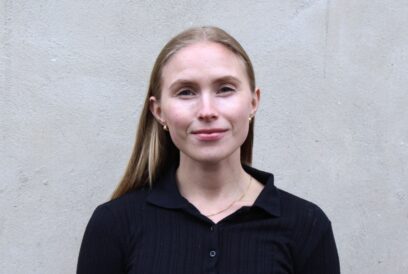

By evaluating health care journalism and teaching people how to do it themselves, Gary Schwitzer hopes to help people to improve their critical thinking about health care.
By evaluating health care journalism and teaching people how to do it themselves, Gary Schwitzer hopes to help people to improve their critical thinking about health care.
Misleading health stories can have horrid effects on people’s lives. The responsibility of media literacy and critical thinking rests on the shoulders of both the makers and readers of health journalism. Patients should learn to ask stupid questions and use review criteria to determine the credibility of health news.
Does the story use independent sources and identify conflicts of interest?
Does the story compare the new approach with existing alternatives?
Does the story appear to rely solely or largely on a news release?
These questions are among the ten criteria used to analyse health care news stories on an American website HealthNewsReview.org.
The site fights against disease mongering and conflicts of interest in healthcare and for overall media literacy on health care news stories.
Gary Schwitzer is an experienced journalist, former medical news reporter at CNN and publisher and founder of HealthNewsReview.org.
“There are so many ways to ignore or twist the facts, and this can harm the public. When news stories frame things in the most positive light without discussing potential harms, the audience will be misled,” he warns.
Since health is a matter that concerns everyone and is therefore also a common area of interest in the media, adult education on media literacy, especially in the matter of health journalism is needed. By evaluating health care journalism and advertising and teaching people how to do it themselves, Schwitzer hopes to help people to improve their critical thinking about health care.
The criteria used for evaluating the health news stories on the website address the basic issues that consumers should know in order to develop informed opinions about health care interventions. The project has reviewed 2,600 news stories and 600 public relations news releases.
Financial crisis of the media increases the need for media literacy skills
Although Europe has more effective self-regulating bodies of journalism than the US, Professor Holger Wormer from the Technical University of Dortmund also sees a demand in Europe for a media literacy project particularly concentrating on health journalism.
The financial crisis of the media is also threatening the quality of journalism in Europe.
In Europe, according to Wormer, what is threatening the quality of journalism is the financial crisis of the media.
“For example, in Germany, the quality of reporting health issues is very different in different media. We have high-quality publications but very often also very poor reporting, especially in regional media and the daily news sections.”
Wormer runs a project called Medien-Doktor at the Department of Science Journalism. The project was inspired by Schwitzer’s work on HealthNewsReview.org.
Medien-Doktor website, which aims to help people classify and understand medical results, started in Germany in 2010. Today, examples of medical reporting are selected almost daily and evaluated by experienced science and medical journalists.
Besides the shared evaluation criteria, Medien-Doktor has added another three general journalistic criteria to theirs and extended the idea to scientific press releases. Furthermore, Medien-Doktor has since moved to work above all with real “peers”, that is, in this case, science journalistic evaluation of the work of other science journalists.
According to the project website, the aim is to attract greater attention to positive examples of what good medical journalism is all about. On top off educating the audience in media literacy, the project seeks to support journalists and offer them tools for constructing pieces of good medical journalism.
The strategy of not tearing the journalists and their work to bits, but rather supporting and offering them research tips and tools has turned out to be successful.
“Our criteria are used in the training of young journalists in many media houses in Germany. Furthermore, many criteria developed by the “Siggener Kreis” – a group of science communicators, scientists and science journalists who meet annually to discuss the further development of science communication in Germany – for people working in the public relations departments of scientific institutions are being adopted from the Medien-Doktor criteria,” Wormer says.

Gary Schwitzer sees that more attention needs to be devoted to direct patient and consumer education.
Education for makers and readers
Both Schwitzer and Wormer believe that the responsibility of media literacy and critical thinking rests on the shoulders of both the makers and readers of health journalism.
“I think more attention needs to be devoted to direct patient and consumer education. I really believe in the need for a patient revolution,” says Schwitzer, who travels around teaching media literacy of health journalism to physicians, medical groups, journalist groups and patient groups.
Wormer agrees about the need for adult education on the subject, which is an important reason for the existence of the Medien-Doktor project.
“As we have lost large parts of the gatekeeping and quality control capacities of journalism, better training for every user to decide what information is trustworthy and what is not seems to be crucial in a democracy.”
It is really healthy to be a healthy sceptic – not a cynic, but a sceptic.
How about the concern that, while educating the audience to be more critical of health journalism, more questions are being raised on the integrity of science?
“That may be a concern, but the absence of this kind of criticism and analysis is an even greater concern,” Schwitzer says.
Funding of quality journalism key to better professionals
Despite the occasional low quality of health reporting, health journalists are not necessarily deliberately misleading their audience.
The process and pace of journalism have changed. Journalists are less and less specialised in certain fields but cover everything from politics to science. Catchy headlines attract more readers, and the demand for fresh news happens on a faster cycle.
Schwitzer clearly sees the effects on health journalism.
“I don’t think it is deliberate deception, but the harm is very real nonetheless. It is the belief that science, health and medical news must be broadcast every day on the 24-hour news cycle just like other news. But that’s not the way science works. Science is incremental, but headlines rush to convey certainty that does not exist.”
More education is needed for journalists covering health issues.
He calls for more education for journalists covering health issues, as it does not follow the same pattern as other news. Journalists should be aware of the essence of science, and their suggesting that certainty exists when it absolutely does not is misleading the public.
“If you cover politics, government and crime, it is common practice to interview one or two people and file your story. That does not work in health care journalism. The journalist must have some additional knowledge or instinct based on experience in order to know when he/she needs to question further. And you must know some of the basics of statistical and study design concepts, which can be misleading if you do not understand them.”
Wormer says that scientific institutions have also increased their public relations and marketing efforts, so even scientific information from institutions must be questioned and this group of professionals trained.
To level the above-mentioned uneven quality of reporting health issues in Germany, Holger Wormer emphasises the need for new concepts of funding from foundations but also from public sources. This would mean, for example, grants for journalists who are well established in science journalism.
He sees the funding of quality journalism as a key to better professionals.
“If we do not find sufficient financing for journalism in the future, its quality will become increasingly endangered.”
Keep in mind when reading healthcare journalism
There are a few hints that Gary Schwitzer lists to keep in mind when reading healthcare journalism.
‘If it sounds too good to be true, it probably is.’
‘Newer does not mean it is necessarily better.’
“In healthcare more healthcare is not necessary better. In fact, it has been shown to be more harmful. For example, screening tests always entail potential harm, and we tend to hear only of the potential benefits,” Schwitzer says.
In the case of getting medical treatment, he advises not to delegate the decision-making on the selected treatments solely to doctors.
“As a healthcare consumer, there are no stupid questions and you should not be too embarrassed to question something, including a conflict of interest, with your doctor. Talk to the doctor, ask how big or small the potential harms are. You know your body the best.”
And lastly, a piece of advice that seems as valid when reading health care reportage as it is for any other media output.
“It is really healthy to be a healthy sceptic - not a cynic, but a sceptic.”
Author







